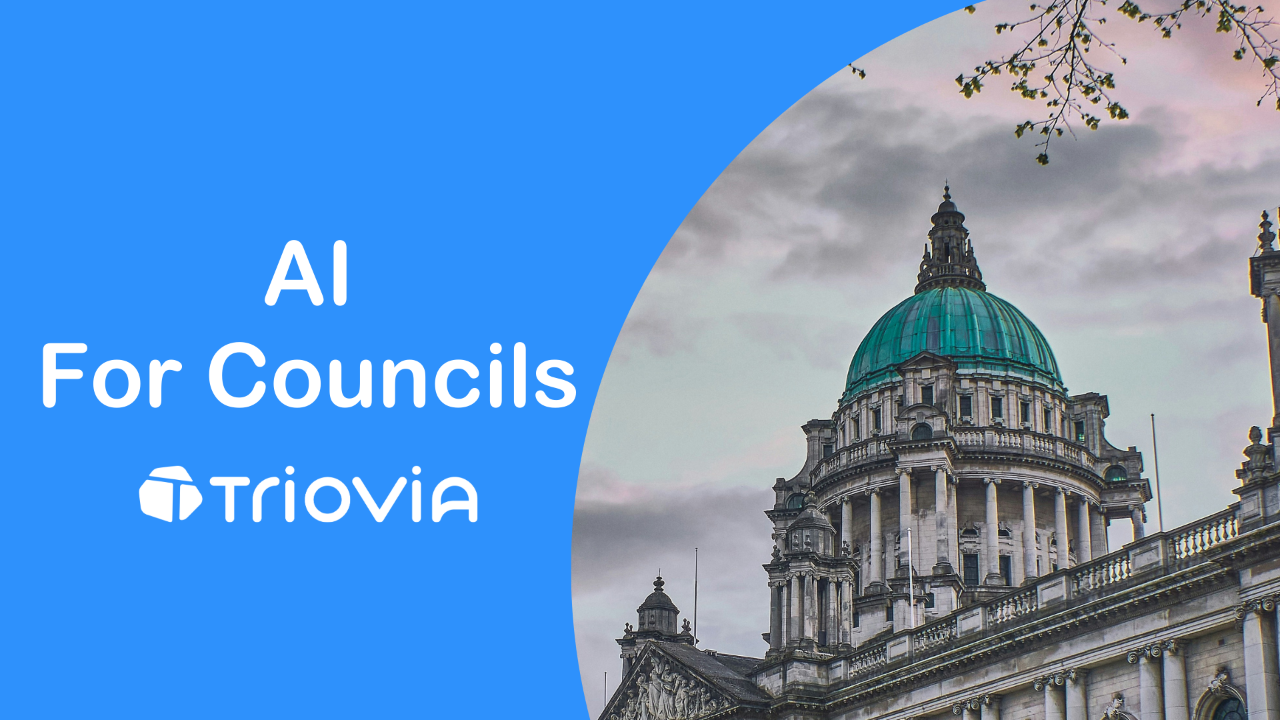What is Responsible AI? A Framework for Council Decision-Makers
Mar 19, 2025
In our discussions with local authorities across the UK, a common concern emerges: as councils explore AI technologies, how can they ensure these powerful tools are used appropriately and ethically?
This is where the concept of "responsible AI" becomes essential for local government leaders.
Beyond the Technology
Responsible AI isn't about the technical specifications of AI systems—it's about the governance, values, and decision-making frameworks that guide how these technologies are deployed in public service.
For councils, this means establishing clear principles to ensure AI systems align with public sector duties and community expectations.
Key Elements of Responsible AI
Fairness, Equality and Inclusion
AI systems learn from existing data, which means they can inadvertently perpetuate or amplify biases present in that data.
For councils, this raises important questions:
- Does our training data represent all community members equitably?
- Have we tested outputs across different demographic groups?
- Are we monitoring for unintended consequences in service delivery?
Privacy and Data Protection
Many council AI applications involve processing personal data—from council tax records to social care assessments.
Responsible implementation requires:
- Clear compliance with UK GDPR and Data Protection Act requirements
- Appropriate legal bases for data processing
- Transparent communication with residents about how their data is used
- Proper impact assessments before implementation
Transparency and Explainability
Residents deserve to know when AI is being used to inform decisions that affect them, and council staff need to understand how these systems work.
This means:
- Clear communications about where and how AI is being used
- Systems that can explain their reasoning in understandable terms
- Processes for challenging or reviewing AI-assisted decisions
- Regular audit and evaluation of outcomes
Environmental Considerations
Some AI systems require significant computing power, which brings environmental costs.
Responsible councils will:
- Consider the energy usage of proposed AI systems
- Balance efficiency gains against environmental impact
- Align AI strategy with climate commitments
Accountability Matters
Perhaps most importantly, responsible AI requires clear accountability. While AI may support decision-making, ultimate responsibility always rests with council officers and elected members—not with the technology itself.
This means establishing:
- Clear ownership for AI system outputs
- Regular review processes
- Escalation paths when issues arise
- Training for staff using AI-enhanced tools
Getting Started
For councils beginning their AI journey, building responsibility into your approach from the start is far easier than retrofitting it later.
Consider:
- Developing an AI ethics policy specific to your council's context
- Creating a simple assessment process for proposed AI applications
- Establishing a cross-departmental group to provide oversight
- Starting with low-risk applications while building expertise
Looking Forward
As AI capabilities continue to evolve, your council's framework for responsible use will need to evolve too. Regular review and adaptation, informed by both technical developments and community feedback, will help ensure these powerful tools truly serve your residents' needs.
The Insider
We hate SPAM. We will never sell your information, for any reason.


